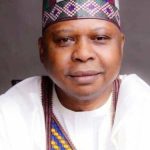Edited by Marylyn Omoloju (Timbuktoo Services Ltd.)
This poser was said to have been culled from a source and adopted by an elder and posted on the Alago Unity Forum, AUF. AUF is a community development WhatsApp platform of the Alago people of Nasarawa state. This entire article is a quoted piece and edited version of the original script.
Indeed, the assertion that power changes people is not merely a philosophical rhetoric, it is also an observable psycho-social, and even spiritual truth. The transformation that individuals undergo when they ascend to positions of authority and power or wealth,has deep roots in human nature, environmental influence, and systemic structure. To argue in support of this position is to accept that power, though abstract, exerts real and transformative pressure on the human mind and consequently on this relationship.
People often ask: What happens to individuals when they assume positions of power? Why do familiar friends, neighbors, siblings, or colleagues suddenly seem so different? Does power possess a mysterious force, a seductive charm, or an invisible “jazz” that transforms someone you once knew into a stranger? Why does the person who once picked your calls instantly now avoid them, or only responds occasionally, if at all? Why does their tone change, now laced with arrogance or emotional distance, as if every interaction is a negotiation for favor? Why do they, once approachable and free spirited, now seem withdrawn or guarded? Though the physical form remains unchanged, something deeper has shifted, psychologically, emotionally, and morally. What happened? Power happened.
Power is not merely a position. It is a force, one that pushes, pulls, tempts, and often derails. The challenge is whether the person in power can maintain balance between who they once were and who the position threatens to make them. Sadly, only a small fraction succeed in staying grounded. The person you once knew is still there, but buried beneath new responsibilities, expectations, burdens, and temptations that stretch the heart and mind beyond normal limits.
The life of such individuals becomes a battleground, full of new pressures, invisible enemies, endless demands, and distorted perspectives. They are no longer living a private life, but a public one, where they are both actor and target. Power changes people, sometimes temporarily, often permanently, and the reasons are many:
1. The intoxication of power: Many become obsessed with the fame, wealth, and influence power brings.
2. Amnesia of impermanence: They forget that power is only a phase, and always temporary.
3. Neglect of history: They ignore the lessons of those who once held power and lost it.
4. Illusions of uniqueness: They think their story will be different, immune to the same fall.
5. Toxic counsel: They surround themselves with sycophants, not truth-tellers.
6. Power as vengeance: They see their tenure as a chance to dominate, enrich themselves, and settle old scores.
In many developing nations, the situation is worse. Power often leads to a sense of divine superiority, where leaders fall under the spell of more prestigious, spiritualists, and mystics who claim to see the unseen. These figures feed egos, point out supposed enemies, and reinforce delusions. In the grip of such counsel, power-holders become blind to reality and deaf to truth. They clutch to power because through it, they become “angelic and infallible”, the society must, should or just worship them.
Power, ultimately, is a lonely peak. At the top, there are more favor-seekers and praise-singers than genuine friends. True allies, the ones who dare to speak the uncomfortable truth, are often silenced or sidelined. Ironically, those closest to people in power (aides, advisers, handlers) often become barriers instead of bridges, isolating leaders from the world they serve.
To stay grounded, leaders must push past these barriers, purveyors of shenanigans. They must seek voices that challenge them, not just flatter them. They must reach beyond the walls of the office to hear the people, the family, the true friends, the ones who loved them before the title, and will still be there after the party is over.
A few basic rule to observe as traits or symptoms of this destination addiction and power brain trauma may include some of the following.
1. Change in priority: When people assume the position of power, their focus more often than not shifts to work, politics or maintaining their new position. Old friends may seem less important compared to their new assignments.
2. Pride or ego: Some people allow success to get into their heads. They may begin to see themselves as superior and look down on their friends who were once their equals.
3. Fear of exploitation: Individuals in power always distance themselves from people once closed to for fear of being exploited with constant demands of favour and other related matters.
4. New Social Circles: Power in most cases comes with access to new networks, colleagues, politicians and wealthy personalities who replace old friends.
5. Peer pressure: Sometimes old friends become envious and as history has demonstrated turn enemies by engaging in systematic and covert pull him down mechanism that may lead such temporary power owners to distance themselves from them. The sense of entitlement becomes overbearing.
6. Busy Schedule: Sometimes the position of power comes with many commitments, even if someone values his old friends, he may not have the luxury of time to keep in touch regularly and could be mistaken otherwise by old friends who by themselves, easily adopt the “wait and see”, not any sooner, they too become victims of this power-fever behavior.
From sources, I learn, “When your source of livelihood depends on politics or a politician, your conscience dies, and telling the truth becomes your greatest fear” (anonymous). I’m also reminded of a Hausa saying that, “Idan akwai kwadayi, akwai wulakanci”. Some of our leaders are humble, but followers feel entitled to seek their attention and, in the process, do anything in greed, conceit and empty arrogance. It’s a lesson.
Because the music does stop. The motorcade disappears. The crowds shift their cheers to someone else. And when all the paraphernalia of power fades, what remains is the legacy, the memory of how they treated people when they had the chance. Those who governed with fairness, empathy, and humility will return to warm welcomes, loyal relationships, and enduring respect. Those who ruled with pride, isolation, and disregard will find only silence, and the painful echoes of what could have been.





